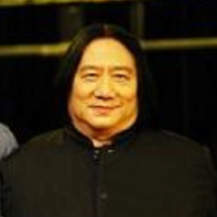Xiao Baiyong

Xiao Baiyong was born in Chaoyang, Guangdong. National first-class actor. In 1993, the album "Man Jiang Hong" signed with BMG Records in Hong Kong was released, and it achieved an impressive achievement of platinum in just three months. It has also become a miracle in the history of Chinese music and classical music.
Xiao Baiyong was admitted to the Shanghai Chinese Orchestra in 1959. After learning Erhu under Xiang Zuying, he also learned Banhu under Liu Mingyuan, and also received the guidance of famous teachers such as Jiang Fengzhi, Wei Zhongle and He Bin. His playing style is mellow, the sound is pure, and the tone is beautiful. In May 1963, he won the second prize and the "Excellent Performance Award for New Works" in the National Erhu Competition "Shanghai Spring" (Brother of the Red Army is back). In August of the same year, he went to the Soviet Union, Romania, Poland and Mongolia for solo performances with the Central Song and Dance Troupe. In 1977, he served as the orchestra's chief, and in 1987, he was approved as a national first-class actor and top actor by the Ministry of Culture of the People's Republic of China. In 1989, he settled in Hong Kong from Shanghai. He came to Taiwan in 2002 to settle down.
In 1964, together with representatives of Shanghai literary and art workers, he performed for President Ho Chi Minh and the Vietnamese troops.
In 1965, he performed Erquan Yingyue and Horse Racing for Chairman Mao Zedong in Shanghai Jinjiang Auditorium.
In March 1979, Xiao Baiyong's solo concert was held in the auditorium of Shanghai Conservatory of Music. He used Erhu, Zhonghu, Gaohu and Banhu to play more than 20 pieces of music with different styles and themes. The concert was a first-of-its-kind and a sensation. In September, he played solo for the former British Prime Minister "Margaret Hilda Thatcher, Baroness Thatcher" at Shanghai Friendship Building. Chai praised Xiao's performance as very charming.
In 1993, the album "Man Jiang Hong" signed with BMG Records in Hong Kong was released, and it achieved an impressive achievement of platinum in just three months. It has also become a miracle in the history of Chinese music and classical music.
Performed at the Elizabeth Stadium in 1994, Mr. Daisaku Ikeda, President of the Soka Gakkai Society of Japan, called Xiao Zhi's performance "Sound of Heaven".
In 1997, he was invited by the Soka Gakkai Society of Japan to perform in Tokyo and was awarded the Artist Certificate Medal.
In 1991, it performed for the first time in Taiwan. Taiwanese music critic Lin Gufang called Xiao an odd number among folk music performers. Another Taiwanese music critic, Mr. Yang Zhongheng, said that Xiao's performances are arrogant and captivating, and he can capture the hearts of listeners with his own style. In addition, Hong Kong music critic Li Jian said that Xiao is a very special performer. He pays more attention to the inner rhythm than the surface score. His characteristics are "there is a score in the heart", "the score is in the heart", and "integrated into one". His music seems to be mixed with nature, naturally coming and going. As for the musical point of view, Xiao believes: "Most current performers and conductors only complete the notes but not the music. Music cannot be seen or touched. It is the Tao, and the Tao relies on perception, not research."
Similar artist
Involving musical instruments
Involved portfolio
Involved news
Popular artists
- 01 Cao Yang
- 02 Bian Memorial
- 03 Zhang Xiuyan
- 04 Liu Qingyao
- 05 bump peng peng peng
 渝公网安备 50010702504639号
渝公网安备 50010702504639号